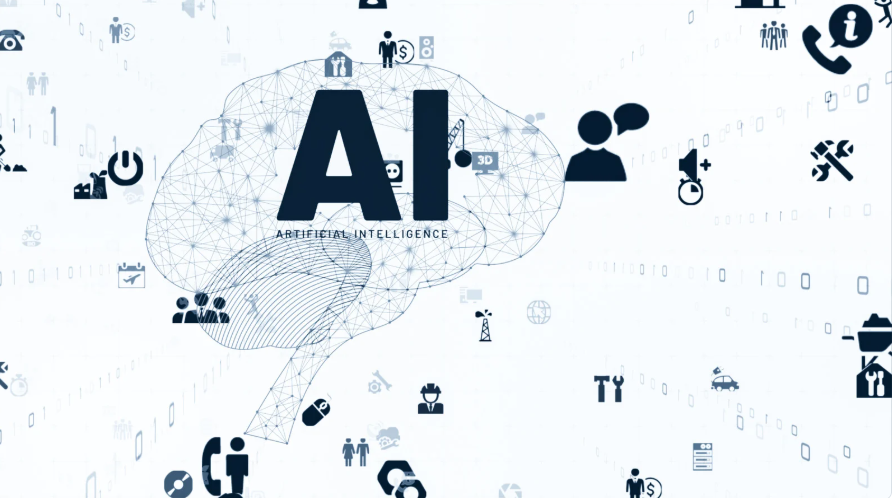AI Business Transformation is reshaping industries by optimizing processes, enhancing efficiency, and driving innovation. As businesses strive to stay competitive, integrating AI into operations is no longer an option but a necessity. AI Business Transformation ensures that companies build future-ready value chains, allowing them to adapt to market changes, increase productivity, and improve customer experiences. By leveraging AI technologies, businesses can streamline operations, make data-driven decisions, and gain a competitive edge in the evolving digital landscape.
Understanding AI Business Transformation
AI Business Transformation refers to the strategic integration of artificial intelligence into business processes to drive efficiency, agility, and innovation. Companies adopting AI-powered automation and machine learning are revolutionizing traditional business models. AI Business Transformation enables businesses to process vast amounts of data, automate repetitive tasks, and enhance decision-making. From predictive analytics to AI-driven customer engagement, businesses that embrace AI Business Transformation unlock new opportunities for growth and sustainability.
The Evolution of Value Chains in the AI Era
Traditional value chains focused on manual processes, siloed operations, and human-driven decision-making. With AI Business Transformation, value chains are evolving to be more connected, intelligent, and automated. AI enables businesses to optimize supply chain management, improve demand forecasting, and enhance customer interactions. AI-powered predictive analytics help businesses anticipate market trends, while robotic process automation streamlines operations. AI Business Transformation is revolutionizing industries such as manufacturing, retail, healthcare, and logistics by creating efficient, data-driven value chains that maximize profitability.
Key AI Technologies Powering Business Transformation
AI Business Transformation relies on several cutting-edge technologies that drive efficiency and innovation. Machine learning and predictive analytics enable businesses to analyze patterns, optimize inventory, and enhance marketing strategies. Natural language processing enhances customer engagement by powering AI-driven chatbots and virtual assistants. Robotic process automation reduces manual effort by automating repetitive tasks, improving accuracy and productivity. AI-driven cybersecurity protects businesses from threats by detecting vulnerabilities in real time. AI Business Transformation empowers businesses with advanced tools that streamline operations, enhance customer experiences, and drive revenue growth.
Steps to Building Future-Ready Value Chains with AI
Building a future-ready value chain through AI Business Transformation involves strategic planning and execution. The first step is assessing current business processes to identify areas where AI can add value. Integrating AI into core business functions such as finance, marketing, HR, and operations enhances overall efficiency. Implementing AI-powered automation minimizes human error and accelerates workflows. AI-driven insights enable businesses to make informed decisions, optimize resource allocation, and improve performance. AI Business Transformation ensures that companies remain agile, adaptive, and resilient in the face of industry disruptions.
Overcoming Challenges in AI Adoption
Despite the benefits, AI Business Transformation presents challenges that businesses must navigate. Common barriers include high implementation costs, lack of AI expertise, and concerns over data privacy. Addressing these challenges requires a well-defined AI strategy, investment in AI training, and collaboration with technology partners. Ethical AI practices and compliance with regulations ensure responsible AI adoption. AI Business Transformation demands a proactive approach to change management, fostering a culture of innovation and continuous learning. Businesses that overcome these challenges position themselves for long-term success in an AI-driven world.
Future Trends: The Next Phase of AI-Driven Business Transformation
The future of AI Business Transformation is characterized by rapid advancements in autonomous decision-making and intelligent automation. AI-driven supply chains will become more self-optimizing, reducing inefficiencies and improving sustainability. AI-powered personalization will redefine customer experiences by offering hyper-targeted products and services. Businesses leveraging AI Business Transformation will benefit from enhanced collaboration between humans and AI, creating a more agile and innovative workforce. As AI continues to evolve, businesses must stay ahead of trends, embrace new technologies, and continually refine their AI strategies.
Takeaway
AI Business Transformation is not just a technological shift; it is a strategic necessity for businesses aiming to build future-ready value chains. Companies that embrace AI-driven automation, data analytics, and machine learning gain a competitive advantage by enhancing efficiency, decision-making, and customer engagement. The journey toward AI Business Transformation requires investment, innovation, and adaptability. Businesses that prioritize AI Business Transformation today will be well-equipped to navigate future challenges and capitalize on new opportunities in the ever-evolving digital economy. Now is the time to take action and position your business for success through AI-driven value chain optimization.
By focusing on AI Business Transformation, companies can ensure sustainable growth, improve operational agility, and create a seamless customer experience, making them leaders in their respective industries.











